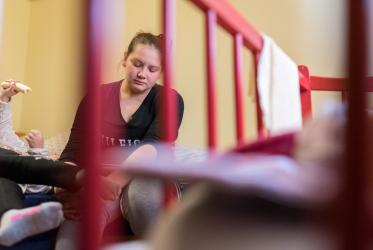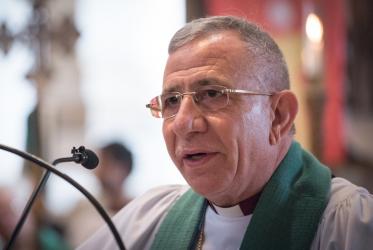Displaying 1 - 7 of 7
08 September 2022
WCC represented at G20 Interfaith forum in Tokyo
13 June 2019
G7 must address famine
22 May 2017
Bishop Younan awarded Niwano Peace Prize
22 February 2017



